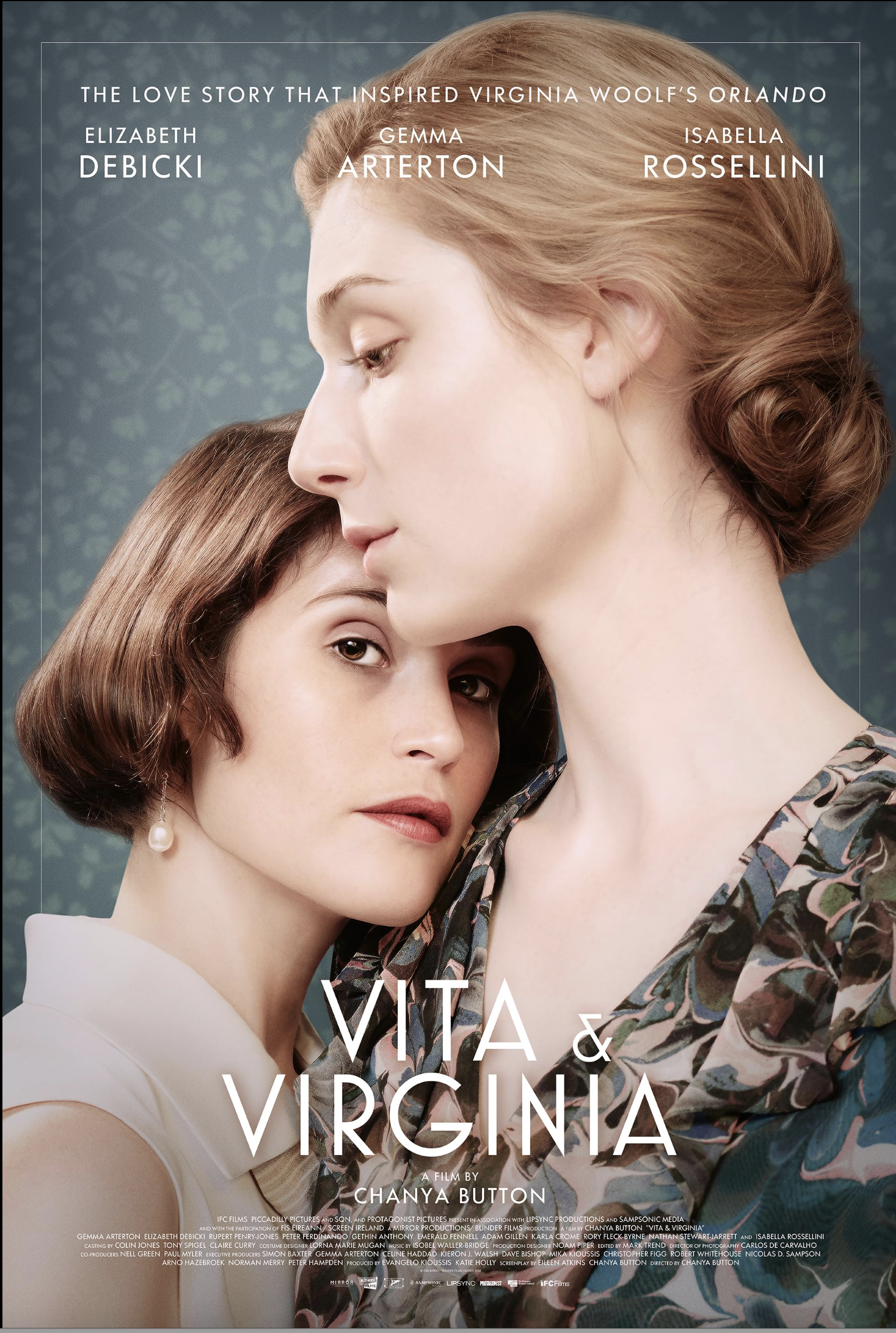Reviewed by Nicole Swisher
Do not start. Do not blush. Let us admit in the privacy of our own society that these things sometimes happen. Sometimes women do like women.
— Virginia Woolf, A Room of One’s Own
I’m betting you didn’t learn in your tenth-grade English class that Virginia Woolf—that dazzling icon of literary genius—was bisexual. Neither did I. When I first heard of Vita & Virginia, a film about the extensive and passionate love affair Woolf shared with fellow novelist Vita Sackville-West, I was one part shocked, two parts ecstatic. I’m always looking for historical queerness to sink my teeth into, always searching for myself and my experiences in the annals of human lives lived long ago. To find just such a thing in Virginia Woolf of all people—one of my literary inspirations for as long as I can remember—was nothing short of electrifying for me.
Released in 2018 and directed by Chanya Button, Vita & Virginia is a romantic drama that opens with Vita Sackville-West, a notorious and gleeful troublemaker, doing what she does best: scandalizing the nation with her outspoken feminist and gender-nonconforming ideals. Vita exudes such an air of brash confidence and alluring sultriness that the viewer would be forgiven for thinking nothing could ever possibly unseat her…until she meets brilliant “madwoman” Virginia Woolf at a party that very same night, and you can practically hear all the oxygen escape her lungs. A chance meeting of their eyes across the room soon leads them to a somewhat more intimate encounter, and then another, and another—until it isn’t long before Vita and Virginia are so desperate for each other’s touch, each other’s breath, each other’s lingering look that they’re nearly going mad with it. “I’ve settled down to wanting you,” Virginia says in a letter to Vita after the latter leaves England with her diplomat husband. “I hope at last this pleases you. It’s damned unpleasant for me.”
And speaking of letters: early all of the dialogue shared between Vita and Virginia in the film is taken from the numerous letters the two exchanged in life, from their fumbling words of unprecedented passion to their first argument as a couple to the soul-baring conversation that caps off the film. Virginia, in all her stark vulnerability, speaks often of fear—the fear of what Vita makes her feel, the fear that she is not allowed to desire in quite the same way as her heterosexual sister, the fear of what should happen should Vita’s proclivity for flights of fancy tear them apart. Vita is far more concerned with fantasies—lavish daydreams of taking Virginia away from her gloomy little writing room in Bloomsbury, putting her in the sun, letting all the world see what a stunning creature lurks behind the screen of her self-defeating doubts. And yet, in the very end, it becomes abundantly clear that Vita is not quite so devoted—or Virginia quite so distant—as either one of them thinks.
In my opinion, there are very few words that can do Vita & Virginia justice. I’ve seen it probably half a dozen times and have yet to tire of it even a little bit. The audacious charisma of Gemma Arterton’s Vita, the haunted half-light in the eyes of Elizabeth Debicki’s Virginia, the sheer magnetism that pulls them toward each other despite so many people in their lives trying to warn them away—all of it is entrancing, captivating, breathtaking. As the film that introduced me to the reality of Virginia Woolf’s bisexuality and showed me a gorgeous example of what the love between two women can look like, it holds a very special place in my heart that I doubt it will ever be dethroned from.
In light of all that, if you—like me—are constantly on the lookout for period romances of the sapphic sort, Vita & Virginia might just be the Holy Grail you’ve been searching for!
Nicole Swisher is an out-and-proud bisexual radical feminist living in northeast Pennsylvania with her precious pets. She enjoys reading and writing fantasy and sapphic romance, playing MMORPGs (massively multiplayer online role-playing games), and learning new languages.

